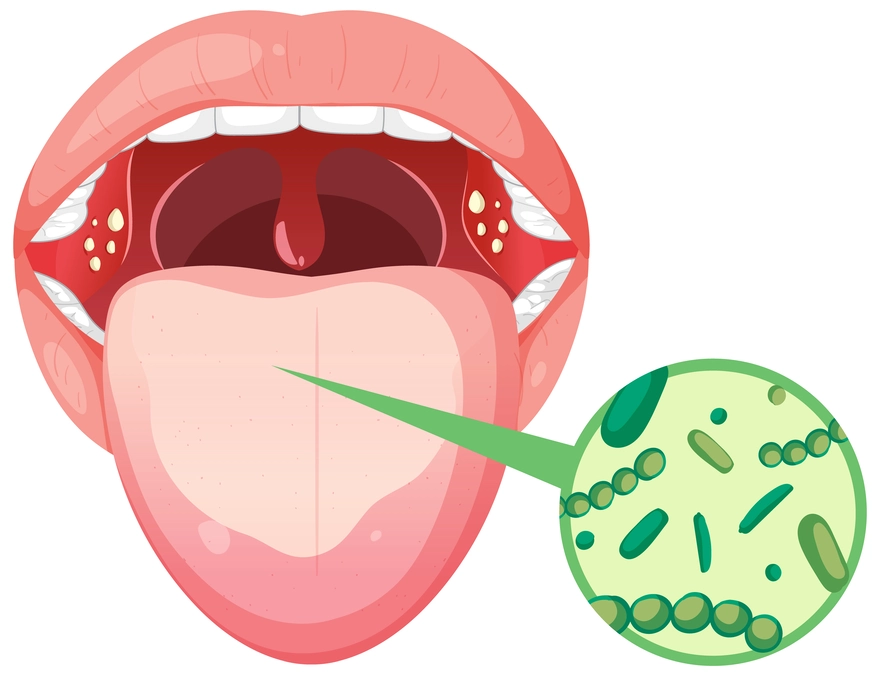Preventive Healthcare
Tongue Cancer: Early Symptoms and Signs to Watch Out For
68 Views
0

Tongue cancer is a serious condition that can significantly impact a person's health and quality of life. As a type of oral cancer, tongue cancer often begins in the thin, flat squamous cells that line the surface of the tongue. When these cells grow abnormally and out of control, they can form a cancerous tumour.
Catching tongue cancer early is crucial for successful treatment and improved outcomes. However, many people may not be aware of the initial signs and symptoms to watch for. By understanding what to look for and seeking prompt medical attention, you can help protect your health and well-being.
In this article, we'll provide an overview of the types of tongue cancer, common early symptoms, and risk factors to be aware of. Our goal is to empower you with the knowledge to identify potential warning signs and take proactive steps for your oral health.
Types of Tongue Cancer
The most common type of tongue cancer is squamous cell carcinoma (SCC), which develops in the squamous cells that line the tongue. SCC accounts for over 90% of all tongue cancer cases and typically appears on the front two-thirds of the tongue, known as the oral tongue. One of the key tongue cancer symptoms includes persistent sores, pain, or difficulty swallowing. Early detection is crucial, as early-stage tongue cancer is more treatable with better outcomes.
Less common types of tongue cancer include:
- Adenocarcinoma: This rare type of tongue cancer originates in the glandular cells responsible for producing mucus and other fluids.
- Lymphoma: Unlike SCC, which affects the surface cells of the tongue, lymphoma develops in the lymphatic tissue present in the tongue. This type of cancer is associated with the immune system and is rare and aggressive.
- Sarcoma: This type of cancer arises in the connective tissues of the tongue, such as muscle, fat, or cartilage. Sarcomas can be particularly challenging to diagnose because their symptoms may mimic those of a tongue infection, leading to a delay in treatment. Signs may include persistent swelling, a mass on the tongue, or difficulty moving the tongue.
Common Symptoms of Tongue Cancer
In its early stages, tongue cancer symptoms can be subtle and easily overlooked. However, being alert to these warning signs can help you catch the disease early and improve your prognosis. Some common early tongue cancer symptoms include:
- Persistent sore throat or feeling that something is caught in the throat
- Unexplained bleeding from the tongue
- Difficulty swallowing or speaking
- Numbness or pain in the tongue that doesn't go away
- A red or white patch on the tongue that lasts for over 2 weeks
- Unexplained weight loss
- Chronic earache
It's important to note that these symptoms can also be caused by other, less serious conditions, like a tongue infection. However, if you experience any of these signs for more than 2 weeks, it's best to see your doctor for an evaluation.
Causes and Risk Factors of Tongue Cancer
While the exact causes of tongue cancer are not fully understood, several factors can increase the risk of developing this condition. One of the most significant risk factors is tobacco use, including both smoking and chewing tobacco, which exposes the tongue’s cells to harmful carcinogens. Heavy alcohol consumption also raises the risk, especially when combined with smoking, as the two together have a compounding effect on cancer development.
Another major factor is human papillomavirus (HPV) infection. Certain strains of HPV, a sexually transmitted infection, are linked to an increased risk of tongue and other oral cancers. Poor oral hygiene, such as neglecting dental care, can also contribute to oral cancer risk. Additionally, individuals with a family history of tongue or other oral cancers may have a genetic predisposition to the disease.
Knowing the early signs and symptoms of tongue cancer is crucial for prompt diagnosis and treatment, which can significantly improve outcomes.
Diagnosis and Staging of Tongue Cancer
If you notice any persistent changes or abnormalities in your tongue, it's important to see a healthcare provider right away. They will perform a physical examination and may order imaging tests such as an MRI or CT scan to get a closer look at the affected area. If cancer is suspected, a biopsy will be done to confirm the diagnosis.
Once tongue cancer is diagnosed, the next step is staging. The stage of the cancer describes how far it has spread and helps guide treatment decisions. The stages of tongue cancer are:
- Stage I: The tumour is small (2 cm or less) and has not spread to nearby lymph nodes or other parts of the body.
- Stage II: The tumour is larger than 2 cm but not more than 4 cm, and has not spread to nearby lymph nodes or other parts of the body.
- Stage III: The tumour is larger than 4 cm, or the cancer has spread to one lymph node on the same side of the neck as the tumour.
- Stage IV: The cancer has spread to nearby tissues, lymph nodes, or other parts of the body.
Treatment Options for Tongue Cancer
Treatment for tongue cancer depends on several factors, including the stage of the cancer, its location, and your overall health. The main treatment options are:
- Surgery: This is often the first line of treatment for early-stage tongue cancers. The goal is to remove the tumour and a margin of healthy tissue around it. For smaller tumours, this may be done through the mouth. Larger tumours may require more extensive surgery.
- Radiation therapy: This treatment uses high-energy beams to kill cancer cells. It may be used after surgery to destroy any remaining cancer cells or as the main treatment for some early-stage tongue cancers.
- Chemotherapy: This treatment uses drugs to kill cancer cells throughout the body. It's sometimes used in combination with radiation therapy, especially for more advanced tongue cancers.
- Targeted therapy: This newer treatment targets specific genes or proteins that contribute to cancer growth. It may be an option for some people with advanced tongue cancer.
Your doctor will work with you to develop a treatment plan that's right for you, based on the stage and location of your cancer, as well as your overall health and personal preferences. It's important to discuss the potential benefits and risks of each treatment option with your healthcare team.
Prevention and Early Detection Tips
While there's no sure way to prevent tongue cancer, there are steps you can take to reduce your risk:
- Don't smoke or use tobacco products
- Limit alcohol consumption
- Practice good oral hygiene
- See your dentist regularly for check-ups and cleanings
- Eat a healthy diet rich in fruits and vegetables
Some people are at higher risk for developing tongue cancer, including those who:
- Smoke or use tobacco
- Drink alcohol heavily
- Have a history of head and neck cancer
- Have a weakened immune system
If you have any of these risk factors, it's especially important to be vigilant about early detection.
Living with Tongue Cancer: Support and Coping Strategies
Managing the physical side effects of tongue cancer treatment is crucial. Eating small, frequent meals can help with nausea and appetite changes, while choosing soft, easy-to-swallow foods may ease discomfort from mouth sores or difficulty swallowing. Staying hydrated by drinking plenty of fluids is essential, and practicing good oral hygiene can help prevent infections. If you experience pain or other side effects, consult your doctor about medications or treatments that can provide relief.
Emotional well-being is just as important. Joining a tongue cancer support group can connect you with others who understand your journey. Speaking with a counsellor or therapist may also help process emotions, while staying active and engaging in enjoyable activities can improve your mood.
Conclusion and Key Takeaways
Tongue cancer is a serious condition, but early detection and treatment can make a big difference in outcomes. If you are diagnosed with tongue cancer, know that there are many treatment options available, including surgery, radiation therapy, and chemotherapy. Your healthcare team will work with you to develop a personalised treatment plan based on the stage and location of your cancer.
If you have concerns about your risk for tongue cancer or are experiencing potential symptoms, don't hesitate to talk to your healthcare provider. Metropolis Healthcare offers advanced diagnostic testing services to detect oral cancers early. With a network of state-of-the-art labs across India and a team of expert pathologists, Metropolis is committed to providing accurate and timely results to support the best possible patient care.























 WhatsApp
WhatsApp